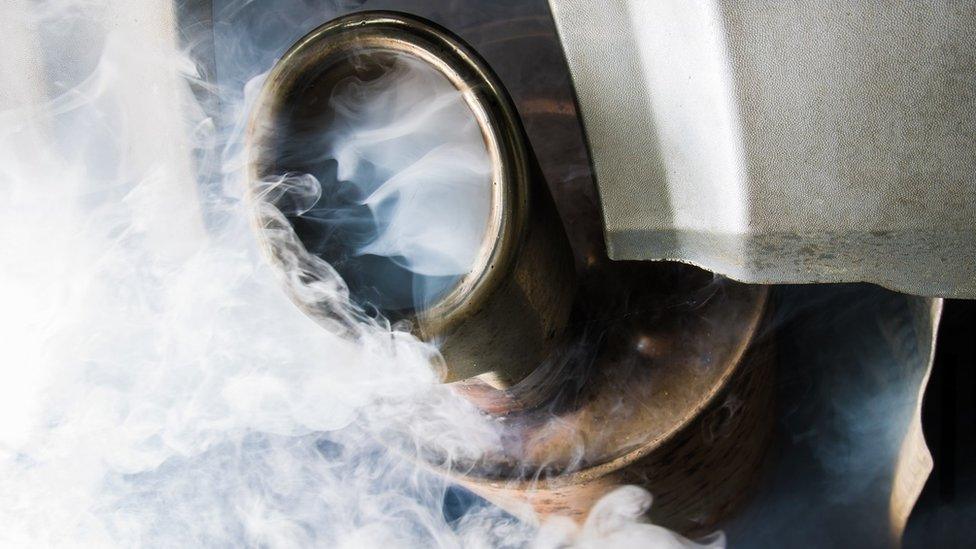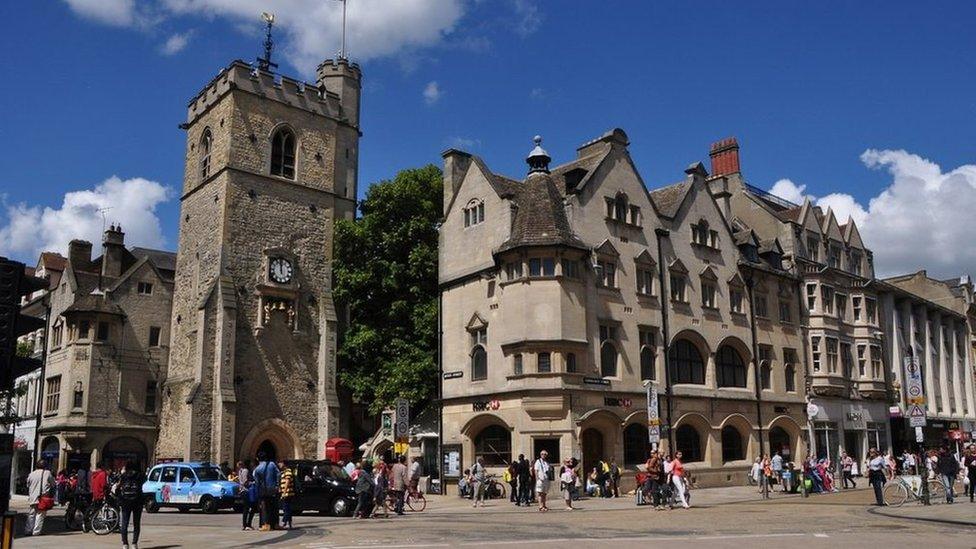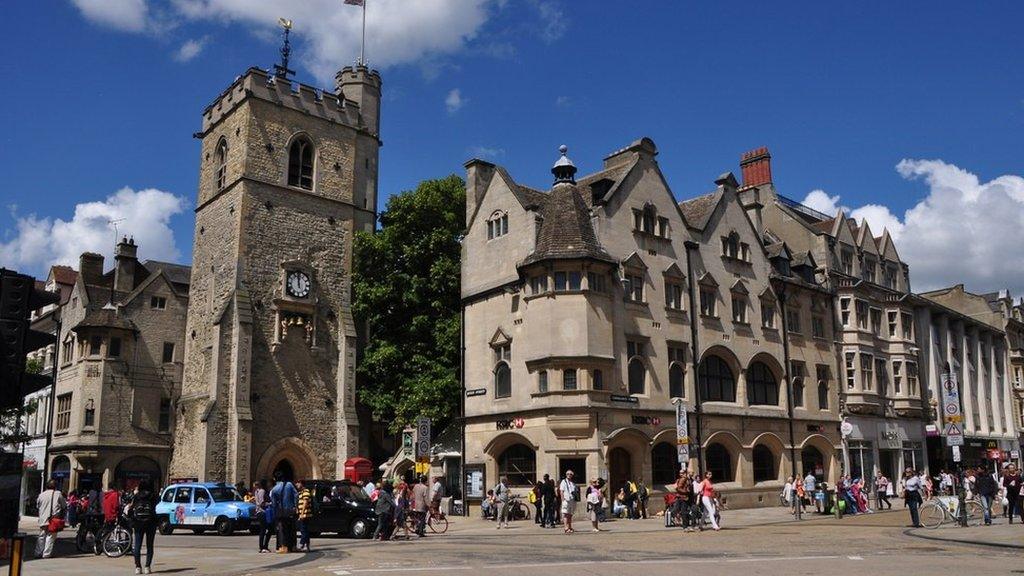Most of Oxfordshire councils' vehicles are diesel-powered
- Published

The vast majority of vehicles owned by Oxfordshire councils are powered by diesel
Most vehicles owned by two councils that are introducing charges for polluting vehicles are diesel-powered.
Oxfordshire County Council and Oxford City Councils' pilot scheme for a Zero Emissions Zone (ZEZ) in Oxford is set to launch in February.
Figures obtained by the BBC show 91% of the county council's fleet and 73% of the city council's fleet is diesel-powered.
The authorities said they were looking to introduce greener alternatives.
They said "most vehicles" would be charged for using a pilot area under their ZEZ, external, which is set to start on an unconfirmed date in February.
Charges for the most-polluting vehicles will start at £10 a day and double to £20 in August 2025.
The county council owns 165 vehicles, 150 of which are powered by diesel. The other 15 are electric.
It said it now operated "an electric-by-default" policy when it was replacing vehicles.
"The majority" of its cars would be electric by 2024 and most of its vans by 2028, it said.

Non-zero emission vehicles using the zones in the city centre will be subject to charges
Tom Hayes, Oxford City Council's cabinet member for green transport and zero carbon Oxford, said it wanted a quarter of its fleet to be electric by 2023.
Currently, 17% of its 348 vehicles are electric.
Mr Hayes said if the council had bought non-electric vehicles, it was because they were specialised and there was was no electric option or that choice was "prohibitively expensive".
The BBC obtained the figures from the local authorities through freedom of information requests.
Of Cherwell District Council's fleet, about 89% of its 82 vehicles are diesel-powered, with the rest electric.
A spokesman said the authority started to "transition away" from diesel vehicles in 2017 and had "adopted electric vehicles wherever possible".
Elsewhere in the county, South Oxfordshire and Vale of White Horse District Council share two diesel vans.
They were bought in 2007 and 2008 when electric vehicles "were not yet a technologically viable alternative", a council spokesperson said.
It said it would "explore the possibility and impact" of switching to zero-emissions vehicles in the future.
West Oxfordshire District Council has five diesel vehicles. It was approached to comment.

Follow BBC South on Facebook, external, Twitter, external, or Instagram, external. Send your story ideas to south.newsonline@bbc.co.uk, external.
- Published9 September 2021

- Published9 March 2021

- Published20 November 2020

- Published30 September 2020
